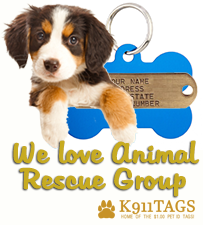
Breeding pets has long been a common practice, driven by the desire for specific traits or simply the joy of having adorable companions. However, it is essential to critically examine the consequences of this practice, both for the animals involved and for the broader ethical considerations. In this article, we will explore several reasons why breeding pets should be carefully reconsidered.
- Overpopulation and Shelter Crisis:
One of the most pressing concerns associated with breeding pets is the issue of overpopulation. Countless animals find themselves abandoned or surrendered to shelters every year due to the inability to find permanent homes. By breeding more pets, we exacerbate this problem, leading to overcrowded shelters, euthanasia, and an increased strain on already limited resources. It is a stark contradiction to bring more animals into the world when there are already so many in need of homes. - Health Risks and Genetic Disorders:
Breeding for specific traits often involves selective breeding, which can lead to an increased risk of genetic disorders and health problems in animals. Purebred dogs, for instance, are particularly susceptible to various inherited conditions due to the limited genetic diversity within their gene pool. Breeding practices that prioritize appearance over health compromise the well-being of the animals, subjecting them to a lifetime of suffering and expensive medical treatments. - Exploitation of Animals:
Breeding pets can perpetuate a cycle of exploitation, treating animals as commodities rather than sentient beings. Female animals are often subjected to repeated breeding cycles, which can have detrimental effects on their physical and emotional health. Additionally, the selective breeding process can result in animals with extreme physical features, such as flat-faced cats and dogs, which can lead to chronic health issues. Prioritizing the desires of humans over the well-being of animals is ethically problematic and raises concerns about animal welfare. - Ecological Impact:
Breeding pets has an ecological impact that is often overlooked. The resources required to breed, raise, and care for pets contribute to environmental degradation. From the production of pet food to the waste generated and the carbon emissions associated with transportation, the pet industry’s ecological footprint is significant. With the growing global concern for sustainability, it is crucial to reevaluate our practices and consider alternatives that are more environmentally friendly. - Adoption and Rescue as Alternatives:
Rather than breeding pets, adopting and rescuing animals from shelters should be encouraged. Animal shelters are filled with wonderful companions waiting for loving homes. By adopting, we can provide a second chance to animals in need, reducing the strain on overcrowded shelters and minimizing the demand for bred pets. Adoption also promotes the principles of compassion and empathy, as we actively contribute to giving neglected animals a better life.
Breeding pets raises serious ethical concerns and has detrimental effects on both the animals involved and the broader community. Overpopulation, health risks, exploitation, ecological impact, and the availability of adoption alternatives all highlight the need to reconsider the practice of breeding pets. By shifting our focus towards adoption, we can make a positive impact on the lives of animals, promote their welfare, and contribute to a more compassionate and responsible society.


